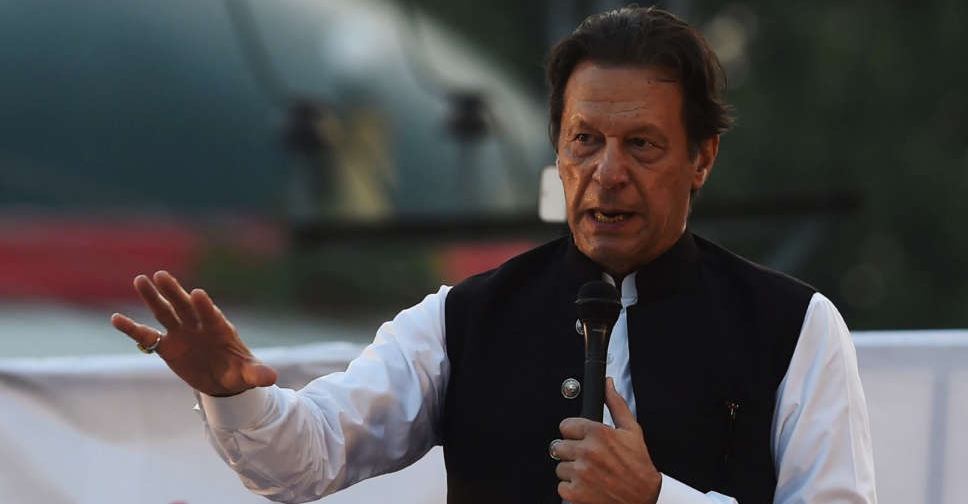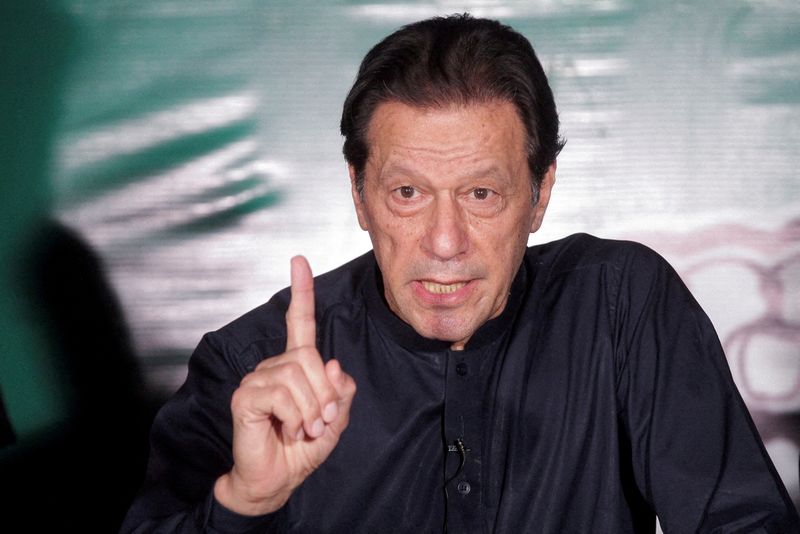Imran Khan's AI-Generated Rally Speech Sparks Controversy Amidst Internet Disruptions
In an unprecedented move, former Pakistani Prime Minister Imran Khan's AI-generated rally speech sparks controversy amidst internet disruptions.
Author:Darren McphersonReviewer:Camilo WoodDec 19, 202369.7K Shares1.2M Views

In an unprecedented move, former Pakistani Prime MinisterImran Khan's AI-generated rally speech sparks controversy amidst internet disruptions.
Imran Khan is currently serving a three-year prison sentence. He utilized an AI-generated audio clip to address a virtual rally for his Pakistan Tehreek-e-Insaf (PTI) party.
This novel approach marked the first instance of AI technology being employed in Pakistan's political landscape.
The audio clip was played alongside an AI-generated image that appeared to simulate speech during the PTI's internet rally, garnering over 1.4 million views on YouTube and attracting tens of thousands of live attendees on various social media platforms.
Challenges To Traditional Rallies
Imran Khan, who has been jailed since August 5 on graft charges, expressed frustration over the restrictions imposed on public rallies for his party.
In the AI-generated speech, he urged supporters to participate in large numbers in the upcoming general elections scheduled for February 8.
“„Our party is not allowed to hold public rallies. Our people are being kidnapped and their families are being harassed.- Pakistani Prime Minister Imran Khan
The move comes amid a state-backed crackdown on physical gatherings by the PTI, coupled with Khan's media blackout.
There were difficulties with the virtual rally because internet outages affected the livestreaming, raising questions about election transparency.
Users across the nation reported slow internet speeds and throttling, a technique used by telecom regulators to limit streaming on apps.
Pakistan's telecoms regulator stated that it is investigating the interruptions, while emphasizing that overall internet accessibility appeared normal.
AI-Generated Speech Based On Approved Notes
Officials from Imran Khan's PTI mentioned that the AI-generated speech was crafted from a written version approved by Khan from prison.
The party organized the event to navigate the crackdown on physical gatherings and media restrictions. Khan, embroiled in numerous court cases, faces challenges to fair proceedings, with some trials held behind closed doors.
Murtaza Solangi, the information minister in Pakistan's caretaker government overseeing the elections, addressed queries about internet disruptions, deferring the issue to the telecom regulator or the Ministry of Information Technology.
The use of AI in Khan's campaign raises questions about free speech and assembly violations, potentially influencing the dynamics of the upcoming general elections.

Global Context And Emerging AI Challenges
The use of AI and deepfake technology is gaining prominence globally, with implications for electoral processes.
As countries worldwide, including the United States, India, European Union, Russia, and Taiwan, gear up for major polls in 2024, the intersection of AI and politics is likely to become a contentious issue.
The potential for disinformation and the difficulty of distinguishing synthetic media from reality pose challenges for ensuring fair and informed electoral processes.
Final Words
In a groundbreaking move, former Pakistani Prime Minister Imran Khan employed AI technology for a virtual rally, marking a significant moment in the nation's political landscape.
Due to internet outages, the AI-generated audio clip and accompanying artificial image encountered difficulties, raising questions about transparency for the upcoming general elections.
As AI integrates into political campaigns globally, concerns about disinformation and synthetic media's impact on electoral processes emerge.
The use of AI by Khan's Pakistan Tehreek-e-Insaf party sets a precedent, prompting discussions about free speech violations and the evolving dynamics of political communication in the digital age.

Darren Mcpherson
Author
Darren Mcpherson brings over 9 years of experience in politics, business, investing, and banking to his writing. He holds degrees in Economics from Harvard University and Political Science from Stanford University, with certifications in Financial Management.
Renowned for his insightful analyses and strategic awareness, Darren has contributed to reputable publications and served in advisory roles for influential entities.
Outside the boardroom, Darren enjoys playing chess, collecting rare books, attending technology conferences, and mentoring young professionals.
His dedication to excellence and understanding of global finance and governance make him a trusted and authoritative voice in his field.

Camilo Wood
Reviewer
Camilo Wood has over two decades of experience as a writer and journalist, specializing in finance and economics. With a degree in Economics and a background in financial research and analysis, Camilo brings a wealth of knowledge and expertise to his writing.
Throughout his career, Camilo has contributed to numerous publications, covering a wide range of topics such as global economic trends, investment strategies, and market analysis. His articles are recognized for their insightful analysis and clear explanations, making complex financial concepts accessible to readers.
Camilo's experience includes working in roles related to financial reporting, analysis, and commentary, allowing him to provide readers with accurate and trustworthy information. His dedication to journalistic integrity and commitment to delivering high-quality content make him a trusted voice in the fields of finance and journalism.
Latest Articles
Popular Articles